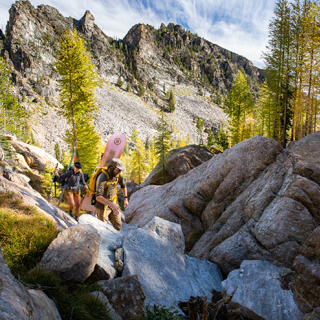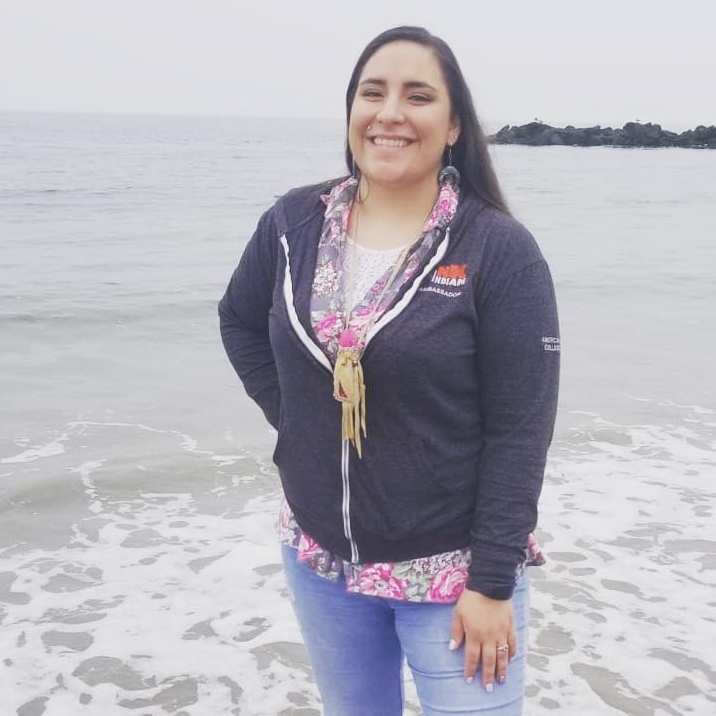Graduate Students
This is a partial list of current graduate students in the W.A. Franke College of Forestry and Conservation.
Celina Gray
M.S. Student Wildlife Biology - Human Dimensions
Contact
- Office
- Skaggs 243
- celina.gray@umontana.edu
- Office Hours
By appointment only
Personal Summary
Oki Nitsiitapi Nidaniko Natoyiipoka, Nistoo Amskapipikuniaki and Métis. Born in Montana and having grown up in Washington State, Celina Gray calls the Pacific Northwest home. Celina’s scholarly motivation for Wildlife Biology & Management is grounded in her family. Being a mother of 4, it’s important for her to model relational responsibility to natural resources grounded in cultural knowledge; like it was provided to her by her father and others through communal ties. Celina currently serves her tribal and scientific communities as: Chair-Elect - Native People's Wildlife Management Working Group - The Wildlife Society; Member at large - Editorial Advisory Board - The Wildlife Professional - The Wildlife Society; Member - SEEDS Advisory Board - Strategies for Ecology Education, Diversity and Sustainability program (SEEDS), The Ecological Society of America; Mentor - Rising Native Graduates Program - American Indian Graduate Center; Wildlife Biology Graduate Student Liaison - Diversity, Equity, Inclusion Committee - UM Franke College of Forestry & Conservation Celina's current research project is: "Akaitapitsiniksinists Ais’stimattsookinaan Aatsimani, “Our Stories Show Us, Connectedness” – Stakeholder Perspectives of Culturally Important Species of the Blackfoot" The objective of the project is to understand the unique characteristics of cultural keystone species of the Blackfoot Confederacy in order to provide both tribal and non-tribal managers an actionable resource to improve tribal-trust natural resource management practices, like acceptance and utilization of traditional ecological knowledge frameworks of wildlife biology, science and management. The social-ecological dynamics, or human dimensions of wildlife biology & management, affect the ways cultural keystone species are managed within Native American communities and their traditional territories in the U.S. Cultural keystone species, or CKS, are animals that form the contextual underpinnings of a culture, as reflected in their fundamental roles in diet, used materials or medicine. These species often feature prominently in the language, ceremonies and narratives of native peoples. Additionally, different cultural groups may define certain CKS as critical indicators of a healthy relationship and adaptation to their environment, which is essential to the stability of a culture over time, especially in a changing climate. Understanding CKS encompasses the understanding of species biology, along with the species’ role in indigenous life-ways and current management practices by all, indigenous or not. By documenting stakeholder perspectives of experiential knowledge and contemporary applied sciences, Celina seeks to contribute to better-informed and effective decision making for wildlife health and conservation as it relates to the needs of indigenous communities like the Blackfoot Confederacy.
Education
B.S. Wildlife & Fisheries Biology, Salish Kootenai College - Flathead Indian Reservation, Pablo, MT
Research Interests
Celina is currently studying Transformative Participatory Action-based Research (TPAR) of cultural keystone species in the Human Dimensions Lab under Libby Metcalf within the UM wildlife biology program. This methodology builds upon the Community-Based-Participatory Research (CBPR) of her undergrad at SKC. Celina has a passion for tribal food sovereignty, tribal environmental law, science and policy, and increasing diversity and inclusion in the field of wildlife biology and conservation.

